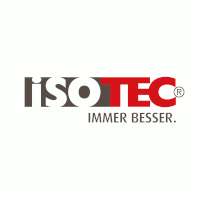Job Opportunities
Find jobs near you, whether onsite, hybrid, or remote.
Servicemitarbeiter (m/w/d)
Café de Paris CologneCologneMitten im Kölner Szeneviertel angrenzend an die beliebte Shoppingstraße Ehrenstraße liegt das Bistro „Café de Paris“. Vom Frühstück über den Business Lunch bis zur Prime Time am Abend, servieren wir E

Sales Manager (m/w/d)- Außendienst mit Sinn & Spitzenverdienst
ISOTEC GmbHGroßVertrieb ist genau Dein Ding? Abschlussstärke ist Dein zweiter Vorname? Dann bist Du bei uns genau richtig! Wir heißen Dich herzlich willkommen bei ISOTEC, einem der führenden Spezialisten für die Bes

IT Projektmanager (m/w/d)
FERCHAU – Connecting People and TechnologiesStuttgartMenschen und Technologien zu verbinden, den Perfect Match für unsere Kunden zu gestalten, immer die richtigen Expert:innen für die jeweilige Herausforderung zu finden - das ist unser Anspruch bei FERC

Testingenieur (m/w/d)
FERCHAU – Connecting People and TechnologiesStuttgartMenschen und Technologien zu verbinden, den Perfect Match für unsere Kunden zu gestalten, immer die richtigen Expert:innen für die jeweilige Herausforderung zu finden - das ist unser Anspruch bei FERC

Kaufmännische Assistenz (m/w/d)
FERCHAU – Connecting People and TechnologiesRheinMenschen und Technologien verbinden. Den Perfect Match für unsere Kunden gestalten. Immer die richtigen Experten für die jeweilige Herausforderung finden - das ist unser Anspruch bei FERCHAU und dafür

IT Systemadministrator (m/w/d)
FERCHAU – Connecting People and TechnologiesStuttgartTechnologischer Fortschritt gelingt nur, wenn Visionen zur Realität werden. Dazu bringen wir bei FERCHAU als eine der führenden europäischen Plattformen für Technologie-Dienstleistungen die smartesten

Rezeptionist (m/w/d)
Hotel Bad SchachenLindauWir sind das schönste Grandhotel am Bodensee. Mit dem schönsten Blick übers Wasser bis auf die Alpen. In Familienbesitz seit 1752. Wirklich: 1752! Den Blick über den See jeden Tag bei der Arbeit genie

Tournant Rezeption (m/w/d)
Hotel Bad SchachenLindauWir sind das schönste Grandhotel am Bodensee. Mit dem schönsten Blick übers Wasser bis auf die Alpen. In Familienbesitz seit 1752. Wirklich: 1752! Den Blick über den See jeden Tag bei der Arbeit genie

Immobilienkaufmann - Schwerpunkt Immobilienverwaltung (m/w/d)
GPEP GmbHLimburgWir sind ein unabhängiges, inhabergeführtes Immobilien-Investment-Unternehmen mit Spezialisierung auf nationale Fachmärkte mit Lebensmittelmärkten als Ankermieter. Unsere Kunden sind deutsche und int

Amazon / E-Commerce Content & Conversion Strategist (w/m/d)
Everbrent GmbHCologneDein Herz schlägt für richtig gute Produkte, E-Commerce und digitalen Content? Du bist voller Neugier, ambitioniert und arbeitest gerne in einem motivierten Team? Dann werde Teil der Everbrent-Familie

Kreditsachbearbeiter (m/w/d) Unternehmenskunden Bauträger
MERKUR PRIVATBANKMunichDie MERKUR PRIVATBANK KGaA mit Sitz in München ist die einzige deutsche Bank, die gleichzeitig inhabergeführt und börsennotiert ist. Mit einer Bilanzsumme von gut 4 Mrd. EUR zählen wir zu den größten

Assistenz (m/w/d)
Grünecker Patent- und Rechtsanwälte PartG mbBMunichWillkommen, wir sind Grünecker. Eine der größten und führenden Kanzleien für gewerblichen Rechtsschutz. Unsere Stärke: Die Leidenschaft für Erfindungen und ihre Erfinderinnen und Erfinder – egal ob Ko

Tax Manager (m/w/d)
Uzin Utz SEUlmZUSAMMEN_WACHSEN WIR HABEN DEN BODEN FÜR DEINE POTENZIALE Seit 1911 machen wir als Familienunternehmen die Welt der Böden zu unserer Berufung. Mit über 1.500 Mitarbeitenden sind wir führend in der Ent

Executive Assistant / Personal Assistant (m/w/d) to CEOs
MIFCOM GmbHMunichEin erster Einblick: Wir, die MIFCOM GmbH, bieten die besten Jobs in der Gaming-Branche. Als der führende Hersteller von individuell konfigurierbaren High-End-Computersystemen im Premiumbereich sind w

Senior Consultant (all genders) Mobility Solutions & Customer Services Strategy
Porsche Consulting GmbHBerlinEs gibt viele Gründe für eine Karriere bei Porsche Consulting. Mit mittlerweile über 900 Mitarbeitenden weltweit zählt Porsche Consulting heute zu den führenden Managementberatungen. Gegründet im Jahr

Entwickler Webshop (m/w/d)
Uzin Utz SEUlmZUSAMMEN_WACHSEN WIR HABEN DEN BODEN FÜR DEINE POTENZIALE Seit 1911 machen wir als Familienunternehmen die Welt der Böden zu unserer Berufung. Mit über 1.500 Mitarbeitenden sind wir führend in der Ent

Praktikum Personalentwicklung/Organisationsentwicklung (6 Monate)
TARGOBANKDuisburgBANK.ECHT.ANDERS. Das ist unser Anspruch als Arbeitgeberin. Für unsere Hauptverwaltung suchen wir Menschen, die dafür sorgen, dass sich unsere Kundschaft an jedem Touchpoint verstanden fühlt. Sie entw

Werkstudent (w/m/d) HR / Personalmanagement
CARL SPAETER GruppeDuisburgSPAETER ist eine erfolgreiche Handelsgruppe für Stahl, Aluminium, Edelstahl, Kunststoffe und Rohstoffe mit fast 1.500 Mitarbeitenden und über 2 Mrd. Umsatz an mehr als 25 Standorten bundesweit. Unsere

Steuerfachwirt / Bilanzbuchhalter / Steuerfachangestellter (m/w/d) Tax Compliance / Private Clients
Flick Gocke SchaumburgFrankfurt am MainFlick Gocke Schaumburg steht mit seinen mehr als 950 Mitarbeitenden seit über 50 Jahren für herausragende steuerzentrierte Rechtsberatung, was uns zu einer der führenden Wirtschaftskanzleien Deutschla

Projektplaner (w/m/div.) Security und Safety
Bosch GruppeNeukeferlohMöchten Sie Ihre Ideen in nutzbringende und sinnvolle Technologien verwandeln? Ob im Bereich Mobility Solutions, Consumer Goods, Industrial Technology oder Energy and Building Technology - mit uns ver

Empfangsmitarbeiter (m/w/d) Werkstudent (m/w/d)
Johanniter Gästehaus MünsterMünsterDas Gästehaus der Johanniter-Akademie mit 142 Zimmern liegt im ruhigen Geistviertel von Münster, nur 3 km von der wunderschönen Altstadt entfernt. Neben dem Angebot des Bildungsinstituts der Johannite

Mitarbeiter (w/m/d) Vertriebsinnendienst / Backoffice
CARL SPAETER GruppeGrevenbrückSPAETER ist eine erfolgreiche Handelsgruppe für Stahl, Aluminium, Edelstahl, Kunststoffe und Rohstoffe mit fast 1.500 Mitarbeitenden und über 2 Mrd. Umsatz an mehr als 25 Standorten bundesweit. Unsere

Mitarbeiter (w/m/d) Vertriebsinnendienst / Backoffice
CARL SPAETER GruppeGrevenbrückSPAETER ist eine erfolgreiche Handelsgruppe für Stahl, Aluminium, Edelstahl, Kunststoffe und Rohstoffe mit fast 1.500 Mitarbeitenden und über 2 Mrd. Umsatz an mehr als 25 Standorten bundesweit. Unsere

Projektmanager Service Excellence / Teamlead (m/w/d)
Gebr. Becker GmbHWuppertalAls familiengeführtes Unternehmen ist BECKER mit ca. 1000 Mitarbeitern und 20 Tochtergesellschaften ein international führender Hersteller auf dem Gebiet der Vakuum- und Drucklufttechnologien und ist

Segmentschichtleiter (m/w/d)
Mast-Jägermeister SEWolfenbüttelDie Mast-Jägermeister SE ist ein weltweit erfolgreicher deutscher Premium-Spirituosenhersteller. Seit Jahrzehnten vertreiben wir unseren weltbekannten Kräuterlikör und verknüpfen dabei die große Tradi